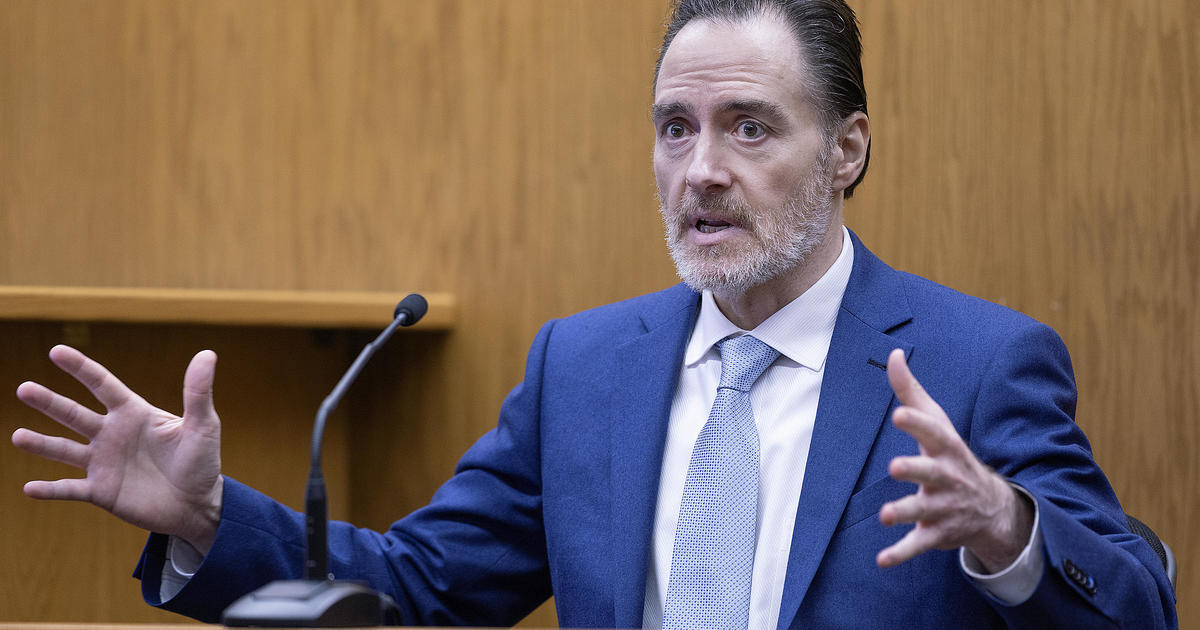Wisconsin Unions Encouraged By Ohio Vote
MADISON, Wis. (AP) — Democrats and union officials encouraged by voters' rejection Tuesday of an anti-union law in Ohio hope to channel that momentum and money into the next big fight — the effort to recall Wisconsin Gov. Scott Walker.
The drive to recall Walker, a Republican, just a year into his term stems from legislation he backed that effectively ended collective bargaining for most public workers in Wisconsin. Walker opponents plan to begin next week collecting the more than 540,000 signatures needed to trigger a recall election.
Unlike Ohio, Wisconsin law does not provide for a referendum vote on rejecting the collective bargaining law. Opponents initially targeted state senators who supported the measure and now will turn to Walker.
The recall campaign will be broader than the Ohio effort and encompass other actions Walker pushed, including passage of a budget that made deep cuts to public education.
Labor organizers who helped mobilize the Ohio vote are already on the ground in Wisconsin. The Ohio election shows that the public is ready to reject conservative policies that weakened unions and cut public programs, said Phil Neuenfeldt, president of the Wisconsin state AFL-CIO, which represents 250,000 workers in the state.
"It shows that if people come together and work in solidarity and work in unity, they can overcome big money spent against them," Neuenfeldt said Wednesday. "I think we started to show that this summer in the Senate recalls and this is further proof this is the model to be used."
Walker's spokesman had no immediate comment Wednesday but said the governor would speak about the Ohio vote later in the day.
Last summer, Democrats targeted six incumbent Republican state senators for recall. Two were ousted, one short of what was needed for Democrats to take majority control of the Senate. Three Democrats survived recalls as well.
The outcome of the Ohio vote was a much clearer win for unions.
By a nearly 2-1 margin, voters repealed a law that would have curtailed the bargaining rights of more than 350,000 teachers, firefighters, police officers and other state employees. The law signed in late March by Republican Gov. John Kasich would have banned public employee strikes, scrapped binding arbitration, and denied public workers the ability to negotiate pensions and health benefits.
A similar Wisconsin law exempts most police and firefighters. It limits most other public workers, including teachers, to negotiating only over salary increases no greater than inflation. It also forced workers to pay more for their health care and insurance benefits.
The fight over the measure in February and March generated huge protests at the state Capitol, drawing as many as 100,000 people, and made Wisconsin the center of the national battle over union rights. All 14 Wisconsin state Senate Democrats fled to Illinois for three weeks in a vain attempt to block passage of the bill.
Backers of the recall say the Ohio vote shows Walker is vulnerable.
"Ohio's decision was limited to their governor's assault on collective bargaining," said Wisconsin Democratic Party Chairman Mike Tate. "In Wisconsin, the insult goes even deeper, to our greatest institutions and shared traditions."
Wisconsin Republican Party spokeswoman Nicole Larson said the Ohio vote has no bearing on the issue in Wisconsin.
"Despite their feeble claims, the stark contrasts between Wisconsin and Ohio speak for themselves, and Wisconsin Democrats need to realize they cannot overturn the will of the majority in Wisconsin by pathetic comparisons and blatant lies," she said.
A poll released in July showed that 59 percent of Wisconsin residents disapproved of Walker's performance at that point. A majority, 55 percent, said they disapproved of his two-year budget plan that made cuts to plug a $3 billion budget shortfall.
Walker has also drawn criticism for signing a law that requires voters to show photo identification at the polls starting next year, a move Democrats said was designed to make it more difficult for their backers to vote.
Walker has defended both the changes made to collective bargaining and his first budget as necessary steps to put the state in better financial condition. He says those efforts, along with other new laws the Republican Legislature has passed with his approval, will make Wisconsin more attractive to business and lead to the creation of 250,000 jobs, his key campaign promise.
Labor unions, conservative groups and others have poured huge amounts into the Ohio vote. Heavy spending is expected by all sides in Wisconsin if the Walker recall gets on the ballot next year
We Are Ohio, the union-backed coalition fighting the law, poured at least $24 million into the campaign, while Building a Better Ohio, which supported the law, spent about $8 million.
An estimated $44 million was spent on the state Senate recall campaigns in Wisconsin.



